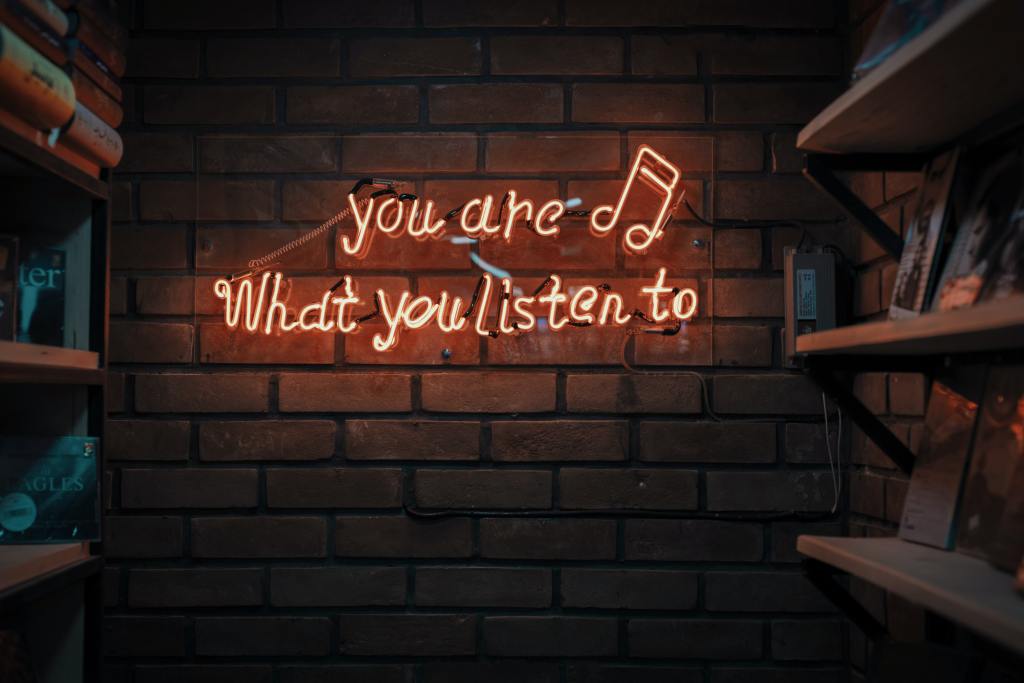
December 7, 2020
If not for the pandemic, I probably would not have listened to very many podcasts. But our dog needed to be walked and I needed something to do while walking her. Good podcasts offer short and simpler ways to introduce myself to topics and issues that would take more time to research on my own. I don’t really use my blog to journal or share about stuff I do, so this is an unusual entry. Anyway, here are my favorite pandemic podcasts of 2020:
The Christian-oriented podcasts
The Bible Project has already developed quite a following because of their smartly packaged animated videos that offer academically solid interpretations of biblical texts and themes. But the podcast drills deep into the socio-historical contexts surrounding Scripture while making Jesus the center of their unifying interpretation of the Bible. Consciousness of the socio-historical contexts surrounding the Bible and its reader not only offers richer explorations of Scripture, but also helps us avoid bringing our cultural baggage unconsciously into our reading and interpretation of the Bible. Over 220 episodes have already been produced! I think the current series on the Family of God will be especially relevant today’s conversations about social justice and human responsibility.
The Inverse Podcast unpacks how Christian leaders and scholars read and are empowered by Scripture even though they acknowledge that the Bible has been used to justify hatred and oppression. The podcast’s mission is to rescue the “good” news from an abusive use of the Bible and retrieve God’s good and just vision in it. Hosts Jarrod McKenna and Drew Hart provide delightful interviews, though the conversations sometimes wander. But if you have time for 90 minutes per episode, it will feel like sitting in conversations with some of the most interesting and exciting voices in the Christian church today.
I’ve also enjoyed Karen Marsh’s Vintage Sinners and Saints podcast based on her book by the same title. In it, she discusses how historical figures in Christian history can model discipleship for us today. These “saints” include well-established personas such as Augustine, Ignatius of Loyola, Julian of Norwich and Dietrich Bonhoeffer as well as those not yet included in the saintly pantheon such as Juana Ines De La Cruz, Sojourner Truth, Fannie Lou Hamer, Howard Thurman, and Mary Paik Lee. Guest commentators join her to reflect further on the significance of these imperfect saints. While it is true that every disciple of Jesus abides by the light of Scripture, no one can understand the Bible by herself. We can all benefit from the guidance of our fore-bearers, as flawed as they might have been, for there is a rich store of wisdom in that great cloud of witnesses. By the way, Karen Marsh leads Theological Horizons a community that supports Christians and seekers in academia to engage faith, thought and life. TH is based in Charlotteville, Virginia.
Church Politics Podcast of the (&) campaign. 2020 was a year that many Christians were deeply divided and confused about their place in American society and role in politics. Led by Justin Giboney, the (&) campaign seeks to speak truth with compassion (&) conviction. Tying together social justice and values-based issues, their largely African-American thought leaders are trying to raise a new generation of urban Christians who will address today’s dilemmas with courage, kindness and an unshakeable faith – for the common good. They haven’t produced that many episodes yet, but I’ve appreciated their efforts to embrace and critique both progressive (social justice) and conservative (values) agendas.
Asian American Christian Podcasts
There are several other Facebook groups and YouTube channels that provide platforms for scholars of Asian American Christianity to share their research, but the following two podcasts are helpful for lay leaders and Church leaders (practitioners).
Centering: The Asian American Christian Podcast of the Asian American Center at Fuller Theological Seminary. This podcast provides devotionals, conversations about the Christian life, church and theology, and other topics that focus on Asian American Christians.
Asian American Christian Collaborative Reclaim Podcast focuses on Asian American Christian perspectives on social justice. AACC started as a Christian response to Anti-Asian discrimination in the wake of COVID-19 and has grown into a resource for social engagement and public witness.
The NPR Podcasts
As a historian, I know that perfect objectivity is impossible to achieve. But truth is not completely subjective or partisan despite what we’ve witnessed recently in the political arena. Because of their commitment to high standards of journalistic objectivity and integrity, I choose to get most of my news and information from NPR. Their podcasts are very engaging! I’ve enjoyed “Hidden Brain,” “Car Talk” and “Wait, Wait, Don’t Tell Me!” But in 2020, “Throughline” and “Code Switch” grabbed most of my attention. Here are some of my favorite episodes:
“The Invention of Race” (Througline, Nov. 20, 2020). A fascinating conversation with Charles King, author of Gods of the Upper Air: How a Circle of Renegade Anthropologists Reinvented Race, Sex, and Gender in the Twentieth Century (which I’m currently reading). It tells the story of Frank Boaz (the focus of the podcast) and three of his women protege who upended American notions about race and gender in the 1920s and 1930s. Boaz’s research helped undermine the false scientific views about race at the time. As a result, eugenics was eventually de-legitimized and cultural relativism was introduced to academia. Boaz also impacted theology, Christian public policy engagement, and Asian and Asian American Christians – something I plan on writing about.
“The Most Sacred Right” (Throughline, October 29, 2020). In the face of slavery, the Civil War and the violence of Jim Crow, Frederick Douglass fought his entire life for what he believed was a sacred, natural right that should be available to all people – the right to vote. This podcast covers Douglass’ life journey.
“America’s Caste System” (Throughline: August 6, 2020). “Race” is often used as a fundamental way to understand American history. But what if “caste” is the more appropriate lens? It certainly broadens our concept of systemic injustice and structural sin. This podcast examines how “caste” has shaped our country through a conversation with Pulitzer Prize winner Isabel Wilkerson, author of Caste: The Origins of Our Discontents.
“The Long, Bloody Strike For Ethnic Studies” (Codeswitch: August 5, 2020). Ethnic studies might not even exist if it weren’t for some students at San Francisco State University. Fifty years ago, they went on strike – and while their bloody, bitter standoff has been largely forgotten, it forever changed higher education in the United States. It also launched the Asian American Studies movement.
“Claim Us If You’re Famous” (Codeswitch: November 10, 2020). I always wondered why so little attention was given to Vice-President-elect Kamala Harris’ South Asian identity. This episode opens up that conversation. “We get into a lot of messy territory, like what her political prominence might help illuminate (or obscure) about South Asian political identity, how multiracial people are perceived, and how Blackness intersects with all of those things.”
“A Treaty Right For Cherokee Representation” (Codeswitch: October 7, 2020). In elementary school, one of my classmates called me an “Indian giver” because I changed my mind after giving him a fancy pencil. He made me angry (I don’t remember why), so I wanted it back. Well, this episode explains where that term originated. Back in 1835, during the Andrew Jackson administration, the Treaty of New Echota granted the Cherokee Nation a delegate in the U.S. House of Representatives. But it’s also the same treaty that led directly to the Trail of Tears, and the death of an estimated 4,000 Cherokee.
Podcasts about Evangelicalism and Conservative Politics
“The Evangelical Vote” (Throughline rebroadcast: September 24, 2020). How and when did white evangelicals become so intertwined with today’s political issues, especially abortion? What does it mean to be a white evangelical today and how has that changed over time?
“The White Elephants In The Room” (Codeswitch: November 18, 2020). While their numbers have dwindled from 21 to 15% of the U.S. population, white evangelicals are a force to be reckoned with in politics, says Robert P. Jones, the author of White Too Long: The Legacy of White Supremacy in American Christianity and the CEO of the Public Religion Research Institute. They make up a little over a third of Republicans, Jones says, and have an outsized impact on elections, making up about a quarter of voters. That’s right—15% of Americans account for around 25% of those who turn out to vote. A conversation with Jones about the power of this voting bloc, and what that means for the national discussion around race in this country.
Honorable mentions:
- Reframing History: Mass Incarceration” (Throughline: September 3, 2020)
- “The United States vs. Billie Holliday” (Throughline: Oct. 8, 2020)
- “James Baldwin’s Fire” (Throughline, September 17, 2020)
- “Reframing History: The Litter Myth” (Throughline: August 13, 2020)
- “Reframing History: The Commentator” (Throughline: August 20, 2020)
- “The Latinx Vote Comes Of Age” (Codeswitch: October 28, 2020)
Mobituaries
Finally, there is this non-NPR podcast, Mobituaries, that shares some intriguing stories of people who’ve died. Mo Rocca loves obituaries so he wrote a book and created this podcast, “an irreverent but deeply researched appreciation of the people (and things) of the past who have long intrigued him.“ Here are some episodes worth listening to:
- “Anna May Wong: Death of a Trailblazer“
- “The Black Congressmen of Reconstruction: Death of Representation“
- “Neanderthals: Death of a Human Species“
What have you been listening to? I’d love to hear from you!


1 Comment